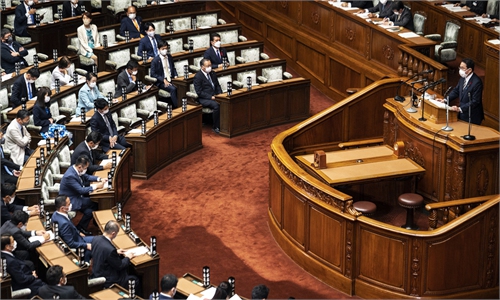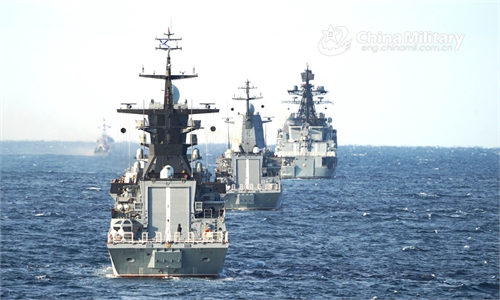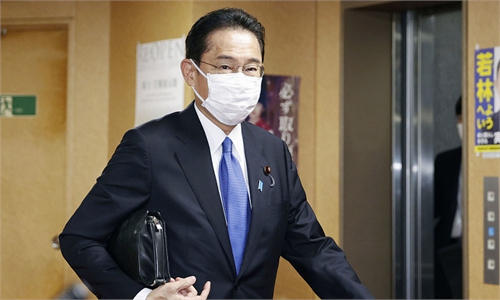Wang Yi offers 5 suggestions on improving China-Japan ties at Beijing-Tokyo Forum
Rebuilding mutual trust highlighted as two nations to celebrate 50th anniversary of diplomatic ties next year
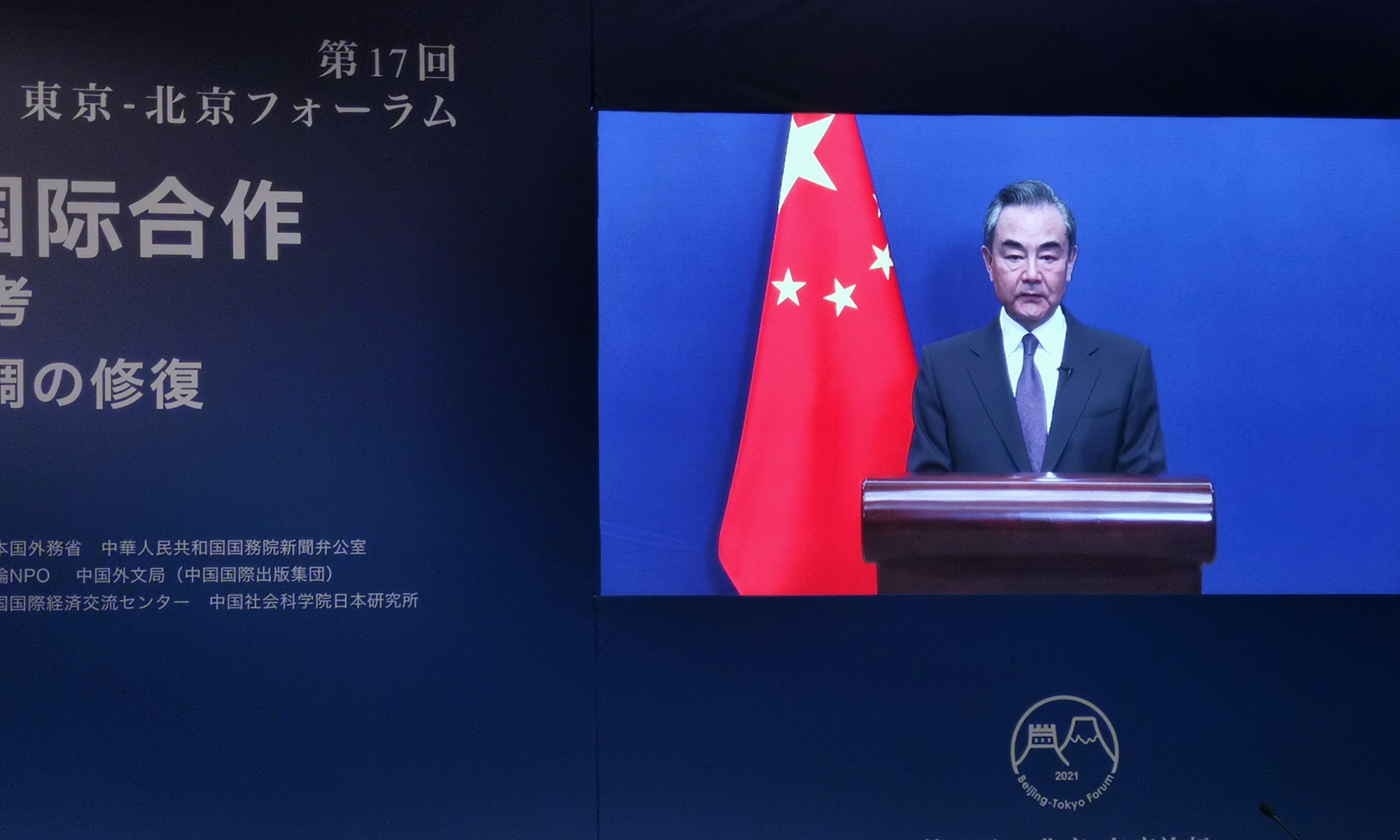
Wang Yi gives a speech at the opening ceremony of the 17th Annual Beijing-Tokyo Forum via video link on October 25, 2021. Photo: Xu Keyue/GT
As next year marks the 50th anniversary of the normalization of diplomatic relations between China and Japan, Chinese State Councilor and Foreign Minister Wang Yi offered five suggestions to guide bilateral relations at the 17th Annual Beijing-Tokyo Forum via video in Beijing on Monday. He highlighted the importance of rebuilding mutual trust, upgrading cooperation, managing differences, expanding exchanges and enhancing coordination.
Supported by China's State Council Information Office (SCIO) and Japan's Ministry of Foreign Affairs, and jointly held by the China Foreign Languages Publishing Administration and Japan's think tank Genron NPO, the 17th Annual Beijing-Tokyo Forum opened on Monday in Beijing and Tokyo at the same time in dual online and in-person formats.
In a video speech at the opening ceremony, Wang Yi pointed out that recent positive interactions between the leaders of the two countries have opened a new chapter in China-Japan relations, and they have also clarified the general direction for the next stage of development of bilateral relations.
Wang said that first, to rebuild mutual trust and consolidate the political foundation of bilateral relations is the crux for both countries. He expressed hopes that Japan can view China's rapid development in a more rational and objective way, and reflect the political consensus that "each other is a cooperative partner rather than a threat" in its policies and concrete actions.
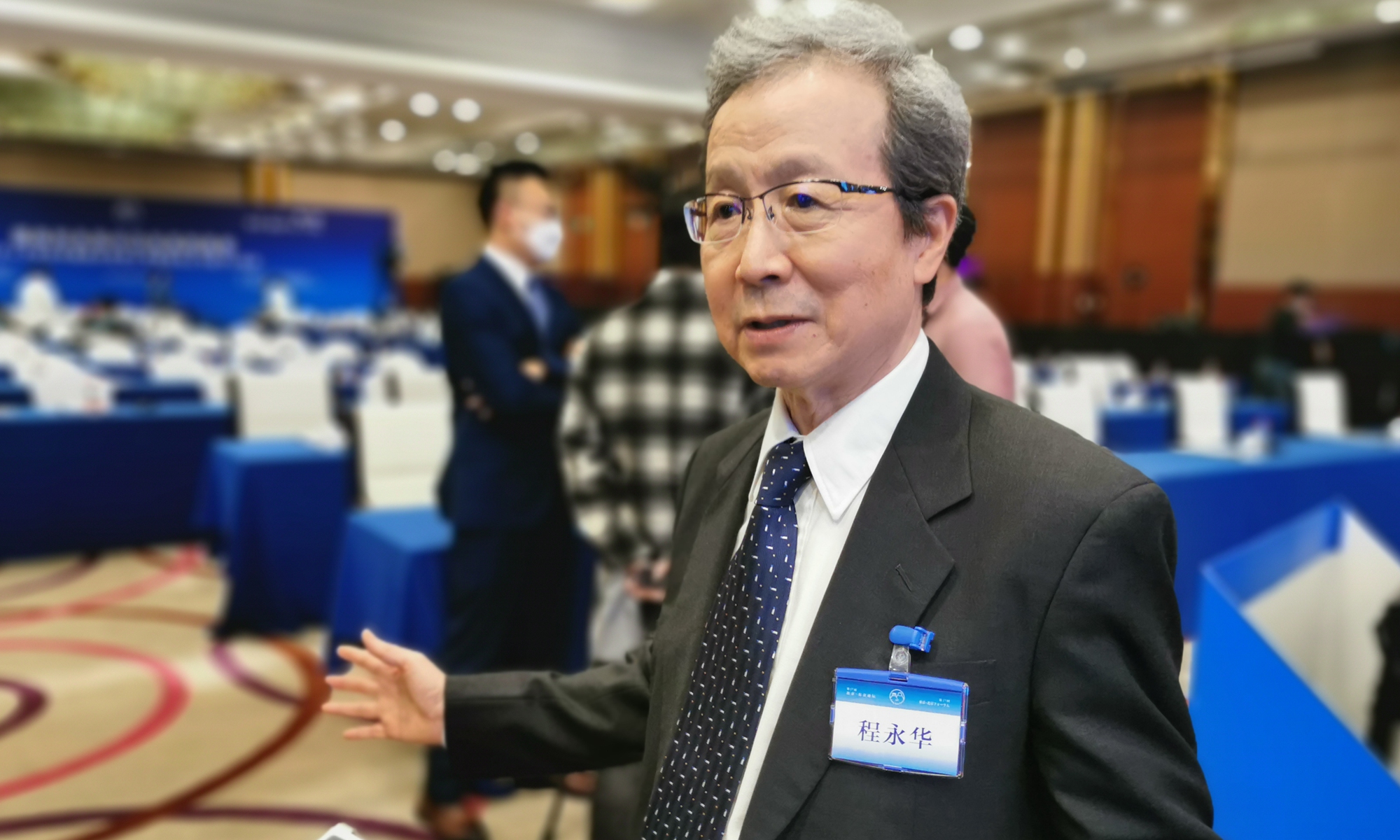
Cheng Yonghua, former Chinese ambassador to Japan, takes questions from media at the opening ceremony of the 17th Annual Beijing-Tokyo Forum on October 25, 2021: Xu Keyue/GT
Issues from history, the Taiwan question and other issues bear on the political foundation of bilateral relations, said Wang. He urged the two sides to abide by the principles and spirit of the four political documents between China and Japan, warning that Japan should not be vague on the issues, let alone try to cross the bottom line.
Second, China and Japan should upgrade cooperation to achieve higher levels of mutual benefits as the fundamentals of mutual needs and complementary advantages remain unchanged, said Wang, noting that the potential for cooperation is still huge.
The two sides should deepen industrial cooperation and jointly maintain the stability of global industry and supply chains, said Wang. Also, both countries should strengthen cooperation on the digital economy to boost the economy and livelihoods on both sides, and strengthen cooperation on carbon reduction and take the carbon neutrality target as an opportunity to advance the climate change agenda, Wang noted.
Third, the two sides should manage their differences and remove burdens and obstacles for the steady development of bilateral ties, said Wang. Differences in China-Japan relations are inevitable, said Wang, noting that the key is to manage them properly and not allow differences to define and dominate bilateral relations.
Wang said on issues of human rights and values, the two sides can have candid dialogue in the spirit of seeking common ground while shelving differences to enhance mutual trust and dispel misgivings, and must not use the issue as a tool to interfere in other countries' internal affairs.
Fourth, China and Japan should expand exchanges. They should take the opportunity of the China-Japan Year of Cultural and Sports Exchange, the Beijing Winter Olympics and the 50th anniversary of the normalization of China-Japan diplomatic ties to strengthen exchanges in various fields, Wang suggested.
Fifth, the two sides should enhance coordination. Wang urged Japan to practice true multilateralism, oppose a "new cold war" and "small circle" mentality, and work together to address global issues.
Senior Chinese and Japanese politicians and experts including Xu Lin, deputy head of the Publicity Department of the Communist Party of China Central Committee and director of the SCIO of China, and Yasuo Fukuda, former Japanese prime minister, delivered speeches at the opening ceremony of the forum.
Several days ahead of the forum, a survey jointly conducted by the China Foreign Languages Publishing Administration and Japan's Genron NPO showed that the Chinese public's impression of Japan worsened this year for the first time in eight years, with a drop of more than 13 percentage points from 2020.
As guest of the forum, Cheng Yonghua, former Chinese ambassador to Japan, told the Global Times on Monday that worsened impressions had been expected.
He explained that in the early days of the pandemic, both sides helped each other, but later, after the former US administration shifted the blame to China, a small number of people and the media in Japan also gradually began to change their tone toward China.
Especially since the Japan-US 2+2 talks in March, it has become obvious that Japan has begun to collude with the US to suppress and contain China.
The Taiwan question and Japan's so-called security concerns are two different things, but some Japanese politicians are mixing the two together and provoking China over the Taiwan question.
These factors all have contributed to the Chinese public's worsened impression toward Japan, Cheng noted.
Cheng noted that the vibes are not warm to mark the 50th anniversary of the normalization of bilateral diplomatic ties next year. He said that was not only due to the pandemic but also because since March, some of Japan's voices on China have been perceived as hostile and some Japanese politicians have deliberately set China up as an "imaginary enemy."
Cheng called on both sides to sit down together and think about how to welcome the anniversary. Both countries should review the experience, lessons and achievements of the past 50 years and plan for the future relations, he noted.

